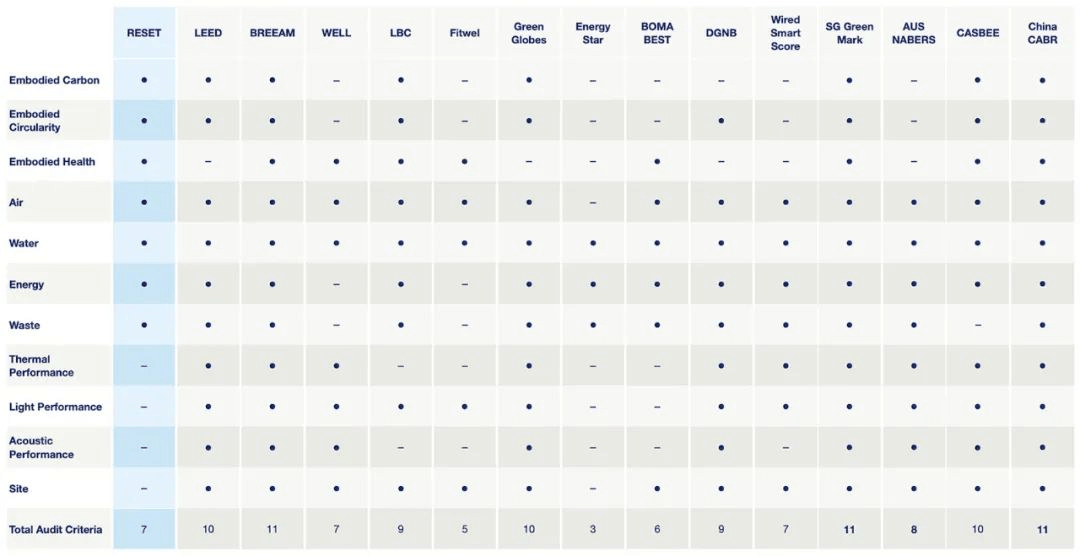RESET Comparative Report: Performance Parameters of Global Green Building Standards from Across the World
Sustainability & Health
Sustainability & Health: Key Performance Parameters in Global Green Building Standards Green building standards worldwide emphasize two critical performance aspects: sustainability and health, with certain standards leaning more heavily toward one or adeptly addressing both. The following table highlights the focal points of various standards in these domains.
Criteria
Criteria refers to the criteria for which building performance is reviewed by each standard. Due to the different emphasis of each building standard, each standard will consist of different criteria. The following table compares
a summary of the criteria audited by every standard:
Embodied Carbon: Embodied Carbon consists of the GHG emissions associated with building construction, including those that arise from extracting, transporting, manufacturing, and installing building materials on site, as well as the operational and end-of-life emissions associated with those materials;
Embodied Circularity: Embodied Circularity refers to the recycling performance of materials used, including source-of-life and end-of-life;
Embodied Health: Embodied Health refers to the impact of the material components on human health, including VOC emissions and material ingredients;
Air: Air refers to indoor air quality, including indicators such as CO₂, PM2.5, TVOC, etc;
Water: Water refers to anything water related, including water consumption and water quality;
Energy: Energy refers to anything energy related, including energy consumption and production locally;
Waste: Waste refers to anything waste related, including the amount of waste generated;
Thermal Performance: Thermal Performance refers to the thermal insulation performance, often including its influence on occupants;
Light Performance: Light Performance refers to the lighting condition, often including its influence on occupants;
Acoustic Performance: Acoustic Performance refers to the sound insulation performance, often including its influence on occupants;
Site: Site refers to the project’s ecological situation, traffic situation, etc.
Post time: Jan-02-2025


